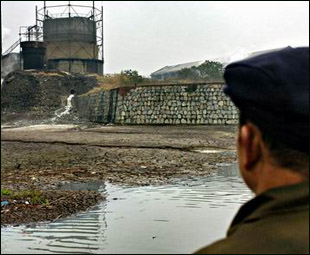| Home / Environment / Photo News | Tools: Save | Print | E-mail | Most Read |
| Paper Mills to Be Closed to Protect Dongting Lake |
| Adjust font size: |
By the end of this year, eight hugely polluting paper-making mills will be closed and all other paper-making firms who cannot meet waste discharge requirements will be ordered to stop production by late March 2007, said the plan by the Environmental Protection Administration of central "The pollution at With a water area of 2,625 sq km, The lake used to have a water area of 6,000 sq km, but shrank to 4,350 sq km in the early 1950s due to silting and land reclamation. Large areas of reed and poplar, a fast-growing tree, both of which are used as raw materials in papermaking, have led to a sharp rise in the number of paper-making factories around the lake. There are 101 paper-making factories near the lake, but only two of them meet waste discharge requirements, according to the administration. Each year, the factories discharge more than 100 million tons of waste water without meeting environmental protection standards, most of which goes into the lake, the administration said. Paper-making mills with an annual capacity of less than 10,000 tons will be shut down by the end of next year, it said. The administration will strictly supervise big paper-making factories near the lake. The governments of Yueyang, Changde and Yiyang, three cities around Nearly 1,000 lakes have disappeared over the past 50 years, an average rate of 20 lakes lost each year, said Zhu Guangyao, Vice Minister of State Environmental Protection Administration of China. Zhu said 75 percent of (Xinhua News Agency December 5, 2006) |
| Tools: Save | Print | E-mail | Most Read |
 |
| Related Stories |
|
|||
